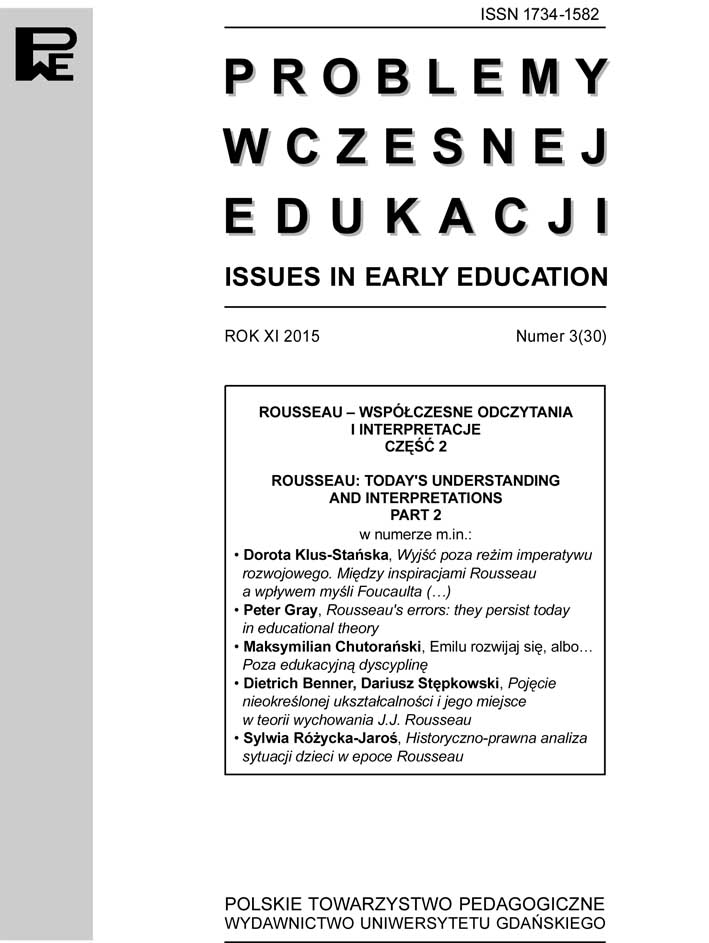Historyczno-prawna analiza sytuacji dzieci w epoce Rousseau
Historical and legal analysis of the situation of children in the age of Rousseau
Author(s): Sylwia Różycka-JarośSubject(s): Social Sciences, Education
Published by: Polskie Towarzystwo Pedagogiczne
Keywords: child marriage; child born out of wedlock; paternity; upbringing; education; inheritance
Summary/Abstract: The aim of this article is to bring the reader closer, in a synthetic way, to the legal realities in which children had to work in the eighteenth century in Europe. The analysis applies in particular to the private law shaping the relationship between parents and children. The first issue taken into account was the varied situation of children of married and unmarried couples because of the fact that children born out of wedlock lived outside the family and had no personal rights and property such as were due to the child born in a marriage. A considerable part of the publication is devoted to the rights resulting from parental authority over a child, which directly shaped his position in the family and in society. The emphasis was put on a particularly strong position in order to stress the father as a head of the family. The rules prevailing at that time relating to the upbringing of children and their education were illustrated, taking into account the different situation of sons and daughters. Important issues were presented relating to the entering into marriage by adolescent children, and their financial situation. Also mentioned briefly were legal sanctions threatened for abuse by children of parents, as well as parents for abandoning or killing a child. In the final part of the article legal regulations of eighteenth-century Europe are quoted. The enforcement of these regulations foreshadowed a change in legal concepts of the child and the treatment of children within a legal system.
Journal: Problemy Wczesnej Edukacji
- Issue Year: XI/2015
- Issue No: 3 (30)
- Page Range: 52-62
- Page Count: 11
- Language: Polish

